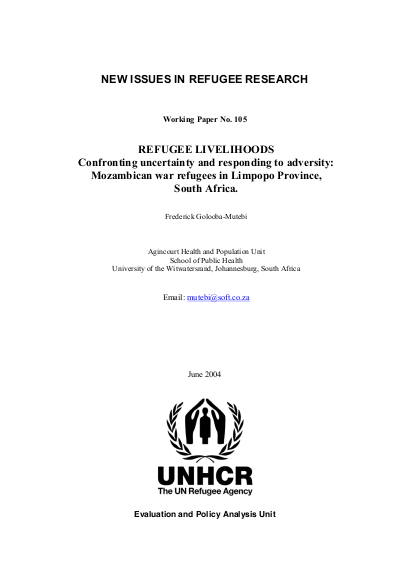
During the 1980s, as a result of civil war in Mozambique, many people fled areas plagued by violence and headed for the relative safety of those that were still peaceful. Others headed for neighbouring countries where they hoped to find refuge. Of the latter, some opted for the Republic of South Africa, eventually self-settling in the Ka- Ngwane and Gazankulu Homelands2 among communities of fellow Shangaans. Selfsettlement was facilitated by the Apartheid government’s refusal to recognise them as refugees and accord them their due rights under international law, the UNHCR’s consequent inability to intervene, the Homeland government’s lack of capacity to encamp and look after them, and the availability of land for the purpose. Following the 1992 peace accord that ended the civil war, the UNHCR mounted a voluntary repatriation programme in 1994/95, under which those wishing to return to Mozambique were assisted to do so. The programme repatriated approximately 31,000 refugees, less than 10 per cent of the estimated total (Johnston, 1997). In 1996 the post-Apartheid government declared a limited amnesty for SADC3 citizens who had lived in the country continuously since at least July 1991, had no criminal record, and were either economically active or married to South Africans or had dependent children born and lawfully resident in the country [HRW, 1998]. The amnesty effectively ended the refugee status of the war-displaced. Many subsequently applied for and acquired South African citizenship and permanent resident status.